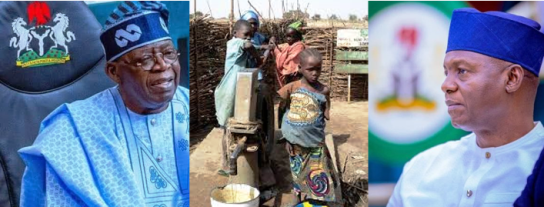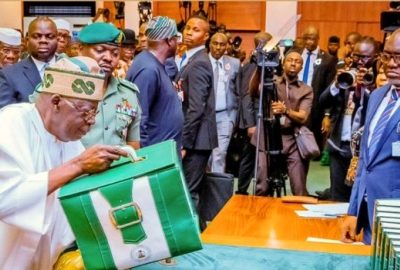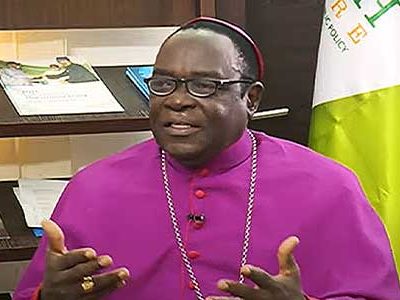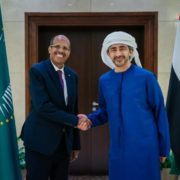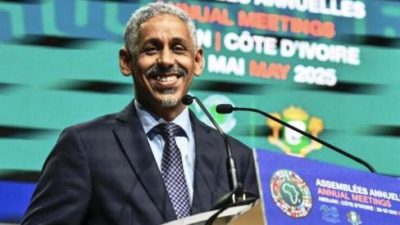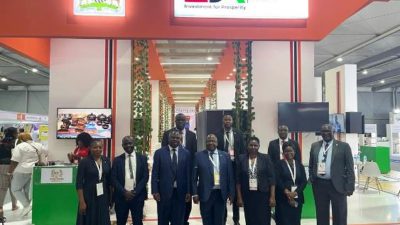By Olusegun Oruame, Editorial Head at Baobab Africa Media
Nigeria’s poverty rate has become an alarming challenge. It is one that Professor Nentawe Goshwe Yilwatda, the Minister of Humanitarian Affairs and Poverty Alleviation, is determined to address. In 2023, Nigeria’s poverty rate reached 38.9%, with an estimated 87 million Nigerians living below the poverty line. This figure positions the nation among the world’s most impoverished, rivaling India. According to the Multidimensional Poverty Index (MPI) from the National Bureau of Statistics, 40.1% of Nigerians were classified as poor in 2022. Even more sobering, Oxfam’s analysis suggests that over 112 million Nigerians currently live in poverty, highlighting extreme inequalities that threaten Nigeria’s stability.
Nigeria’s Fight Against Poverty: Can Minister Yilwatda Turn the Tide for the Tinubu Administration?
Poverty is not just an economic issue—it is an existential threat to Nigeria’s future. Successive administrations have grappled with the challenge, often with disappointing results marred by corruption, inefficiency, and inadequate funding. In an effort to break the cycle, President Bola Ahmed Tinubu appointed Prof. Yilwatda in October 2023 to head the Ministry of Humanitarian Affairs and Poverty Alleviation. The question now is whether this appointment will usher in a new era of effective poverty reduction or perpetuate a legacy of unfulfilled promises.
Global Examples: Poverty Reduction Success Stories
Countries around the world have made remarkable strides in poverty alleviation, serving as models for Nigeria. China, for instance, lifted over 800 million people out of poverty over the last four decades through strategic investments in education, infrastructure, and rural development. In Brazil, the “Bolsa Família” program—a cash transfer initiative tied to educational and healthcare requirements—successfully cut poverty rates in half. Rwanda, following its tragic genocide, has embraced digital technology and agricultural reforms to become one of Africa’s fastest-growing economies.
For Nigeria, such success stories emphasise that poverty can be tackled effectively with the right mix of policies, political will, and accountability. The Tinubu administration has a unique opportunity to emulate these models by implementing data-driven policies that focus on empowerment, rather than short-term handouts.
Prof. Yilwatda’s Vision: From Poverty to Empowerment
Upon assuming office, Prof. Yilwatda committed to making the Ministry of Humanitarian Affairs and Poverty Alleviation accessible and transparent. His approach diverges from previous administrations, focusing on long-term empowerment rather than temporary relief. One of his first acts was to address the controversy surrounding the detention of minors involved in protests against the rising cost of living. The government’s decision to release these children, coupled with plans to integrate them into schools, sent a clear signal that the new minister intends to humanise his role and engage in meaningful poverty reduction efforts.
Prof. Yilwatda oversees a network of agencies, including the National Emergency Management Agency (NEMA), North East Development Commission (NEDC), and the National Social Investment Programme Agency (NSIPA). His vision is to streamline and optimise these bodies, ensuring they work together toward a common goal: uplifting Nigeria’s most vulnerable populations.
Leveraging Data for Effective Intervention
Unlike previous poverty reduction programs that were hampered by inconsistent data and poor planning, Prof. Yilwatda is prioritising data-driven decision-making. He has vowed to use reliable information from the National Population Commission (NPC) and other credible sources to identify where poverty is most severe and to ensure interventions are targeted where they are needed most.
The days of indiscriminate cash handouts in market squares are over. Prof. Yilwatda envisions a Nigeria where accurate data guides policy, identifying the true needs of the poor and directing resources toward education, skills development, and entrepreneurship. This shift from charity to empowerment aims to create sustainable pathways out of poverty.
Beyond Handouts: Skills, Jobs, and Entrepreneurship
Prof. Yilwatda’s focus is clear: addressing poverty must go beyond distributing food or temporary relief supplies. Sustainable development requires equipping individuals with the skills they need to become active contributors to the economy. The Ministry plans to launch training programs that will help Nigerians transition from poverty to productivity.
Humanitarian food supplies, while necessary in emergencies, will no longer be the primary tool for poverty alleviation. Instead, the Ministry will focus on educational initiatives, job creation, and fostering entrepreneurship to break the cycle of dependency and drive economic self-reliance.
Addressing the Roots of Poverty in Nigeria
For decades, Nigeria’s poverty alleviation policies have been hindered by corruption, political interference, and lack of accountability. Programs like the National Economic Empowerment and Development Strategy (NEEDS) failed to achieve their goals due to poor execution and a lack of clear metrics for success. Prof. Yilwatda’s approach promises to be different—grounded in accountability, transparency, and a clear commitment to measurable outcomes.
The Minister’s strategy includes:
- Accurate Data Collection: Utilizing reliable demographic data to locate Nigeria’s poorest communities.
- Targeted Interventions: Implementing specific programs that address the needs of different regions, from urban centers to rural areas.
- Empowerment over Dependency: Shifting focus from short-term relief to long-term development, with a strong emphasis on education, skills, and entrepreneurship.
- Accountability and Transparency: Creating a framework that tracks progress and holds agencies accountable for results.
The Stakes for the Tinubu Administration
Poverty reduction is not just a moral obligation; it is a political imperative for the Tinubu administration. If successful, these efforts could secure President Tinubu’s legacy and play a decisive role in the 2027 elections. With over 50% of Nigeria’s population directly affected by poverty, effective poverty reduction could have far-reaching consequences for national stability and prosperity.
The Tinubu administration’s “Renewed Hope Agenda” hinges on the promise of economic transformation. By empowering millions of Nigerians to escape poverty, the government can achieve more than just political stability—it can foster a generation of citizens capable of contributing to Nigeria’s development.
A New Era of Accountability and Empowerment
Prof. Yilwatda’s task is monumental, but his commitment to data-driven decision-making, transparency, and a shift from handouts to empowerment is a promising start. Nigeria has a chance to reverse the trends of the past, shedding the label of the “world’s poverty capital” and becoming a beacon of economic revival in Africa.
To succeed, the Ministry of Humanitarian Affairs and Poverty Alleviation must not merely manage poverty but actively dismantle its root causes. This means engaging the private sector, fostering innovation, and creating opportunities for all Nigerians to thrive. At the end of the day, the true measure of success will be the number of Nigerians who transform from poverty statistics into stories of empowerment and success.
Nigeria is watching, and the stakes could not be higher. For the first time in a long time, there is hope that a data-driven, empowerment-focused strategy will finally deliver the long-overdue promise of prosperity for all.

